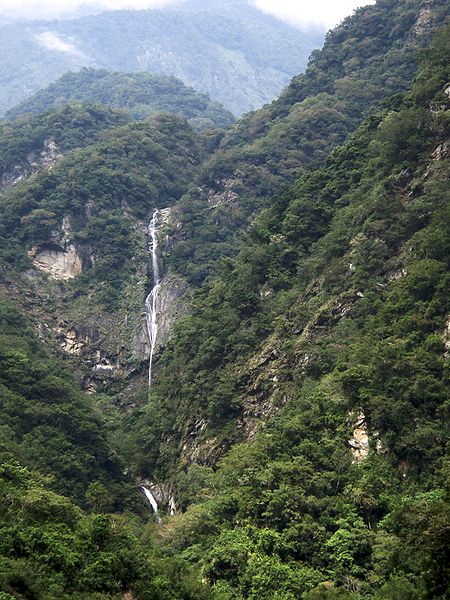
Thammasat University students are cordially invited to participate in a free Friday, 29 April Oxford University Zoom webinar on Today Hong Kong, Tomorrow Taiwan: History, Geopolitics and Transboundary Civil Society between China’s Two Peripheral Societies.
As the Oxford University webpage explains,
“Today Hong Kong, Tomorrow Taiwan” has been a popular slogan since two large-scale citizen disobedience campaigns resisted the growing encroachment from Beijing in 2014 (the Sunflower Movement in Taiwan and the Umbrella Movement in Hong Kong), and emerged again in Hong Kong’s 2019 anti-extradition movement and Taiwan’s 2020 presidential election. This lecture will take a historical and geopolitical perspective to understand the contrasting results of prodemocracy movements in two territories. In particular, the lecture will focus on how civil society actors built and sustained a vibrant transboundary network in the past decade and how it facilitated broader change in identity and popular opinion.
The speaker will be Professor Ming-sho Ho of National Taiwan University.
Professor Ming-sho Ho teaches at the Department of Sociology, National Taiwan University, and the Director of the Research Institute for the Humanities and Social Sciences, Ministry of Science and Technology (Taiwan). His research interests include social movements, labor, and environmental issues.
Professor Ho earned a Ph.D. in Sociology (2000) from National Taiwan University. A book by Professor Ho is in the collection of the TU Library.
TU students may obtain his other writings through the TU Library Interlibrary Loan (ILL) service.
The Thammasat University Library collection also includes several books about different aspects of societal and political life in Hong Kong and Taiwan.
The webinar will be at 7pm Bangkok time on Friday, 29 April 2022.
Students interested in participating are encouraged to register at the following Zoom link:
https://us06web.zoom.us/webinar/register/WN_eqztvlK1SqGarUYP0ZCjIw
The event is organized by the Faculty of Oriental Studies, University of Oxford, the United Kingdom.
The organizer is Dr. Annie Hongping Nie, a Teaching Associate and Chair of Examiners at the Oxford School of Global and Area Studies, University of Oxford.
For any further questions or information, kindly write to
hongping.nie@orinst.ox.ac.uk

Last month, an article coauthored by Dr. Ho was posted online by the Made in China Journal: Peddling the Revolution? How Hong Kong’s Protesters became Online Vendors in Taiwan. The article begins:
Some former Hong Kong protesters who fled to Taiwan have resorted to selling local products online to Hong Kong-based consumers to make a living. This essay argues that these purchases become both an alternative form of financial support from Hong Kong’s politically conscious consumers and business transactions endowed with political meaning. Not without ambivalences, these online vendors sell more than products, but also a lifestyle, an identity, and a commitment—in short, a revolutionary dream at a time when street protests in their home city are no longer feasible.
The national security legislation imposed by the People’s Republic of China’s rubberstamp legislature in mid-2020 has forcibly turned Hong Kong into a repressive police state. With opposition leaders and protest activists either in jail or in exile, the city’s prodemocracy movement and civil society sustain relentless assaults from the authorities. Apparently, Beijing is not satisfied with merely stamping out the 2019 citywide resistance against the extradition bill, but also is bent on radically reengineering the former British colony into a submissive mainland city. As Hong Kong is undergoing a drastic transformation in the wake of a failed uprising, it is of interest to examine ‘life after the squares’. Where have the protesters gone? After the flare-up of passionate protests, how do former activists adjust to the return of ‘normalcy’? And among those who have fled abroad, how do they retain allegiance to their political vision while managing to survive in an unfamiliar setting? Hong Kong’s diaspora communities have managed to maintain the momentum of the prodemocracy movement. Well-known leaders, such as former lawmakers Nathan Law and Ted Hui, have become globetrotting advocates for the Hong Kong cause. In North America, Europe, Australia, Japan, and Taiwan, immigrant associations are sprouting up to offer support for newcomers. However, beyond these salient cases, there are numerous exiled activists who are struggling to gain a footing in the host society. Although a transnational network for donations of money and protest gear (goggles, helmets, masks, and so on) emerged during the anti-extradition movement (Li and Fung 2021), former participants who do not have fame or connections must survive on their own wits. There are no official statistics about the number of Hong Kong protesters who have taken refuge in Taiwan, where they are able to stay on student or other visas or under a special protection program run by the government if they cross the border legally. Our understanding is that the number is no less than 1,000—an estimate that does not include those who have migrated to Taiwan not because of their involvement in the protests, but out of concern for Hong Kong’s future. Given these numbers and the lack of attention this phenomenon has received so far, how ex-protesters in Taiwan are managing to secure their livelihood on their own deserves a closer look. In particular, in this essay, we analyse the phenomenon known as ‘protesters’ purchasing’ in Taiwan. Some former activists use online platforms (Instagram, Facebook, Telegram, and others) to sell Taiwanese commodities to Hong Kong–based customers. Drawing on eight in-depth interviews we conducted in 2020 and 2021 with Hongkongers and Taiwanese—including six interviews with sellers personally involved in the ‘protesters’ purchasing’ business—complemented by data we collected by observing websites and social media accounts, we show how, while most of their patrons have access to other shopping venues for the same Taiwan-made food and goods, they are willing to pay higher than market price to support these comrades in exile. We argue that in this way such purchases become both an alternative form of financial support from Hong Kong’s politically conscious consumers and business transactions endowed with political meaning. As such, these online vendors sell more than products, but also a lifestyle, an identity, and a commitment—in short, a revolutionary dream at a time when street protests in their home city are no longer feasible. Broadly speaking, ‘protesters’ purchasing’ is part of the so-called Yellow Economic Circle that has emerged since the autumn of 2019. At its core, it amounts to a consumer campaign to patronise pro-movement stores or ‘yellow stores’ and to boycott pro-government stores or ‘blue stores’ (Chan and Pun 2020). Beyond the immediate goal of political consumerism, the campaign also envisions a utopia of economic solidarity, in which like-minded Hongkongers form a mutually supportive and redistributive community. Despite a similar political intent, Taiwan’s ‘protesters’ purchasing’ deviates in a few significant ways. First, internet-based transactions are more anonymous than those in physical shops. Second, as there is no need to rent shop space and the seller purchases products only after an order has been paid, it is a business that requires no advanced capital and thus is easily accessible to young and poor people. Last, it involves an almost exclusively one-way flow of Taiwan-made commodities to Hong Kong and a flow of cash in the opposite direction. There is no circularity envisioned in the Hong Kong–based Yellow Economic Circle. Origins Hongkongers are avid online shoppers, eagerly embracing the convenience of e-commerce. During the 2019 protests, many participants and supporters purchased protective gear such as helmets and masks from Taobao, a China-based online marketplace, before such items were removed from the catalogue. Hongkongers are also frequent international travellers who enjoy buying foreign goods, including Korean cosmetics, Japanese snacks, and Thai groceries.

(All images courtesy of Wikimedia Commons)
